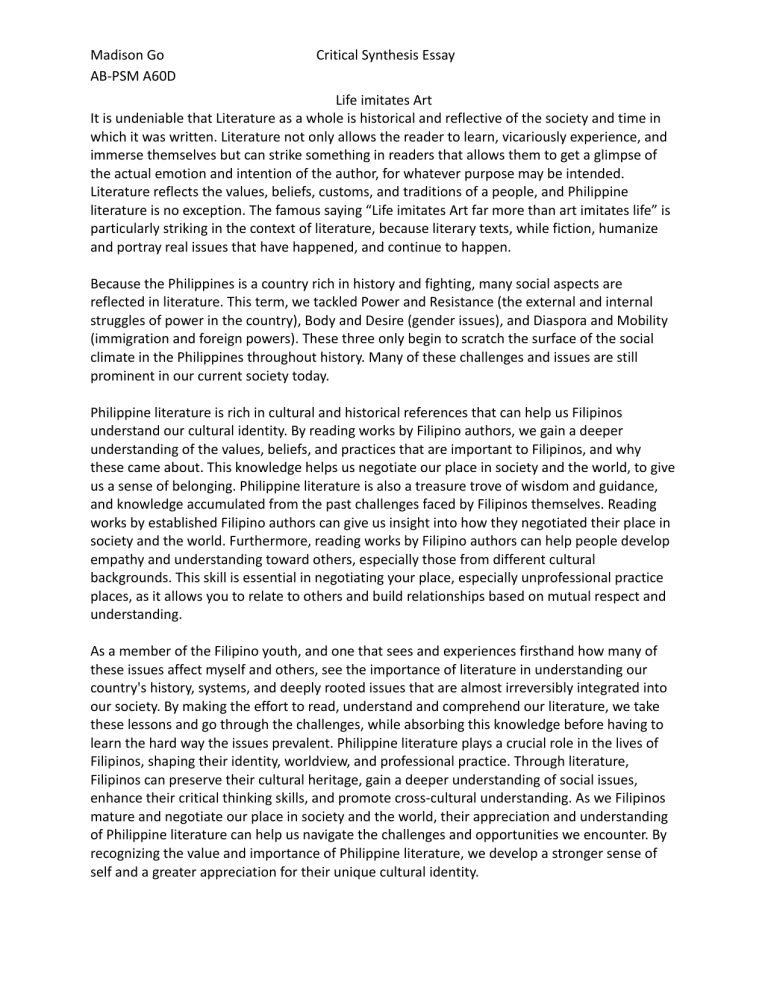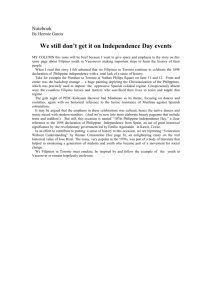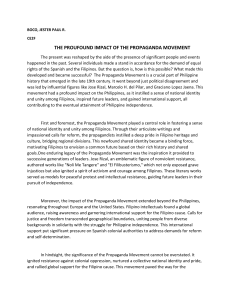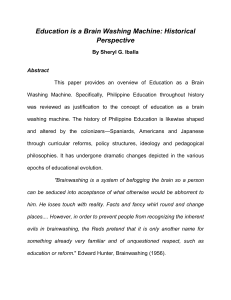
Madison Go AB-PSM A60D Critical Synthesis Essay Life imitates Art It is undeniable that Literature as a whole is historical and reflective of the society and time in which it was written. Literature not only allows the reader to learn, vicariously experience, and immerse themselves but can strike something in readers that allows them to get a glimpse of the actual emotion and intention of the author, for whatever purpose may be intended. Literature reflects the values, beliefs, customs, and traditions of a people, and Philippine literature is no exception. The famous saying “Life imitates Art far more than art imitates life” is particularly striking in the context of literature, because literary texts, while fiction, humanize and portray real issues that have happened, and continue to happen. Because the Philippines is a country rich in history and fighting, many social aspects are reflected in literature. This term, we tackled Power and Resistance (the external and internal struggles of power in the country), Body and Desire (gender issues), and Diaspora and Mobility (immigration and foreign powers). These three only begin to scratch the surface of the social climate in the Philippines throughout history. Many of these challenges and issues are still prominent in our current society today. Philippine literature is rich in cultural and historical references that can help us Filipinos understand our cultural identity. By reading works by Filipino authors, we gain a deeper understanding of the values, beliefs, and practices that are important to Filipinos, and why these came about. This knowledge helps us negotiate our place in society and the world, to give us a sense of belonging. Philippine literature is also a treasure trove of wisdom and guidance, and knowledge accumulated from the past challenges faced by Filipinos themselves. Reading works by established Filipino authors can give us insight into how they negotiated their place in society and the world. Furthermore, reading works by Filipino authors can help people develop empathy and understanding toward others, especially those from different cultural backgrounds. This skill is essential in negotiating your place, especially unprofessional practice places, as it allows you to relate to others and build relationships based on mutual respect and understanding. As a member of the Filipino youth, and one that sees and experiences firsthand how many of these issues affect myself and others, see the importance of literature in understanding our country's history, systems, and deeply rooted issues that are almost irreversibly integrated into our society. By making the effort to read, understand and comprehend our literature, we take these lessons and go through the challenges, while absorbing this knowledge before having to learn the hard way the issues prevalent. Philippine literature plays a crucial role in the lives of Filipinos, shaping their identity, worldview, and professional practice. Through literature, Filipinos can preserve their cultural heritage, gain a deeper understanding of social issues, enhance their critical thinking skills, and promote cross-cultural understanding. As we Filipinos mature and negotiate our place in society and the world, their appreciation and understanding of Philippine literature can help us navigate the challenges and opportunities we encounter. By recognizing the value and importance of Philippine literature, we develop a stronger sense of self and a greater appreciation for their unique cultural identity.





